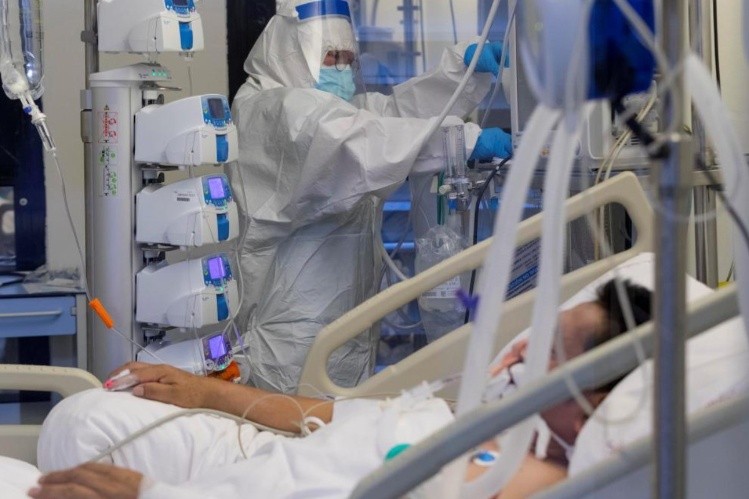In 2010, the “Post-ICU Syndrome” was typified by the Society of Critical Care Medicine, according to which said syndrome affects with cognitive, physical and mental symptoms, those who, having been admitted to an Intensive Care Unit, suffered from it. , a deterioration in the quality of life after discharge. In the 21st century, follow-up studies of survivors continued, finding obvious signs of post-traumatic stress disorders, which persisted for a considerable time, with serious consequences for their current lives.
From a comprehensive anthropological perspective, it was noted that the experiences of these people during their hospitalization make up a complex and interdisciplinary problem, as do the relatives and caregivers of these patients, who also suffered different sequelae. Let us remember that the tensions of the Intensive Care Units are added to this, aggravated by the over-demanding of health professionals, due to the covid-19 Pandemic, which was imposed globally.
Mental health and quality of life
Numerous investigations account for the negative consequences in mental health and quality of life, of patients, their families and health personnel. For this reason, from this starting point, we set ourselves the objective of our work, that through Information, Communication and Education as well as through the practice of methods, procedures and other resources, it could be prevented, mitigated and avoid the suffering of “post traumatic stress”.
Based on this situation, a multidisciplinary group from different institutions through the Interdisciplinary Center for Integral Studies-CIDEI-depending on the Vice-rectorate for Training and the Faculty of Philosophy and Humanities of UCCuyo, created an Extension and Research Project, turning all the effort to carry out a committed, socially relevant investigation, with an important field work to be carried out with the central actors of the San Juan ICU (patients, health professionals and family members), in order to discover and analyze the stress factors that they have suffered during the hospitalization process, so that finally, obtaining the Conclusions and Proposals, the Health Teams (doctors, psychologists, nurses, nutritionists, physiotherapists, kinesiologists, etc.) can approach the possible modifications and/or incorporation of practices that contribute to improve existing protocols and rescue above all, the vision of man as a or Human Person.
Bioethical reflection
The conception of man as a “human person” is central to our research work. Man is a Person, and as such, Subject of Rights, among them, the Right to life and to be respected in his Human Dignity until the final hour.
Here we are entering the field of Bioethical reflection as the foundation of human praxis. The emphasis on spiritual aspects is of vital importance in addressing the issue that involves us, since we well know that spirituality is directly linked to people’s emotional well-being and quality of life.
According to the WHO, quality of life is an individual’s perception of their position in life, in the context of the culture and value system in which they live, in relation to their goals, expectations and concerns, beliefs, values, traditions and practices. The same group “Quality of Life” of the WHO, affirms that the recognition of “spirituality” allows the most effective development of strategies in seriously ill patients and also in their families.
Working with Spirituality, in any area of human life, links us directly with humanitarian treatment, in this case, with the Humanization of Health Care.
“soft skills”
From this perspective, our ethical-pedagogical intention will also aim to contribute to the training of Health Sciences graduates, in the so-called “soft skills”, such as emotionality, solidarity, generosity, communication habits, skills for relate, (empathy, active listening, respect, compassion), which will undoubtedly invite professionals to make a turn in their professional practice in the face of a humanization of excellence.
In this regard, during the month of June the “1st International Seminar on the Prevention of Sequelae of Intensive Care. Interdisciplinary Approach” will be held, of which we will provide information in a timely manner.
- Humanizing intensive care
Our exploration work led us to come across the “HU-CI Project (Humanizing Intensive Care), which emerged in Spain in 2014 and was applied with great success in more than 19 countries, training health professionals and continuing its work to raise awareness of around the world. Currently he has generated the Master in “Humanization of Humanitarian Assistance: Patients, Families and Professionals”, at the University of Barcelona. Our philosophical view, from Bioethics, undoubtedly leads us to notice a paradigm shift (from the prevailing technological paradigm) towards a “new ethics”, an “ethics of care”, a Humanistic Ethics centered on People, on the care of the other, on the care of all those involved (patients, families and professionals). of a paradigm shift that emerges as a necessity and as the path towards the construction of excellent healthcare, a change that makes it possible for Bioethics and Technology to be united in celebrating tion and defense of life (John Paul II).
By Dr. Mercedes Palacio M.
Bioethics Specialist

